6 Major CRE Highlights for Phoenix in 2021
A look at the top developments, deals and more in the city over the last year.
Phoenix has continued to provide a hotbed of investment potential over the last year, with new developments, initiatives and deals taking place throughout 2021. From industrial projects taking over the city to office acquisitions and climate change goals, here is a roundup of the top commercial real estate moments that are shaping the continued success of this West Coast metro.
Semiconductor, Engineering Plants
Intel announced earlier this year the company was expanding its semiconductor manufacturing capacity, bringing two new factories to its Ocotillo campus in Chandler. The new projects will provide 15,000 long-term jobs and support Intel’s increasing requirements for products and customers. Dubbed Fab 52 and Fab 62, the build-out represents a $20 billion investment. Completion for the two projects is scheduled for 2024. This expansion brings Intel’s total investment in the state to $50 billion since opening its campus four decades ago. This development also marks Arizona’s largest private-sector investment in its history.
Taiwan Semiconductor Manufacturing Co.’s project in Phoenix will be three times larger than initially announced and will comprise 3.8 million square feet of space across several properties. Last December, the company acquired more than 1,100 acres of land to produce this $35 billion computer chip factory development.
In May, ElectraMeccanica broke ground in Mesa for its next assembly and engineering plant. The 235,000-square-foot project will create up to 500 jobs and produce 20,000 of its flagship SOLO vehicles annually. The company did more than a year of searching for its next location and finally settled on the Phoenix submarket for its $35 million facility. The company is eligible for more than $8 million in grants and tax credits from the state.
Paradise Valley Mall Redevelopment
A partnership between Macerich and RED Development received rezoning approval in February for its redevelopment plan of Paradise Valley Mall, a 1.2 million-square-foot shopping center downtown. The firms were looking to develop the site into a 6.5 million-square-foot, mixed-use project that would include retail, grocery, restaurants, office, apartments and self storage. The mall was constructed in 1978 and expanded in 1990, then listed as “in redevelopment” since 2012. Macerich purchased the property back in 2002 with seven other assets. About a month later, it was made known that Macerich sold the property for $100 million to RED Development and an affiliate, retaining a 5 percent interest in the project.
Transit, Road Upgrades
Last year the city adopted the cool pavements system, which applies reflective coating to streets, lowering extreme surface temperatures. The pilot project revealed an average surface temperature of 10.5 to 12 degrees lower than traditional asphalt. The city has pledged $2.8 million in funding for environment-related issues and has adopted several new resources across the metro. Mayor Kate Gallego named David Hondula, an environmental scientist and heat researcher at Arizona State University, as director of the nation’s first publicly funded office of heat response and mitigation. Additional climate programs include “Cool Corridors” to plant more shade trees and install shade structures to decrease heat. Gallego has an interim goal of reaching net-zero by 2030.
The South Central Extension/Downtown Hub will connect the current light rail system in downtown Phoenix and operate south. The project includes a hub in downtown, beginning at McKinley Street between First and Central Avenues. The extension will add a hub between Washington and Jefferson Streets and the Third Avenue loop will connect to the future Capital Extension project. The advancement is funded through Transportation 2050, a 35-year, multi-modal plan approved by Phoenix voters and scheduled for completion in 2024. The state is also working on the 8.3-mile I-10 West Extension that will connect with the existing Valley Metro Rail system to west Phoenix. Now going into Phase II, this will extend the rail along I-10 to the 79th Avenue and I-10 Park and Ride.
Howard Hughes Corp.’s $600M Investment
Now the nation’s largest owner of master-planned communities, Howard Hughes Corp. purchased Douglas Ranch in Buckeye. The 37,000-acre enclave was acquired from a joint venture between JDM Partners and El Dorado Holdings. The finished project will include 100,000 homes and 55 million square feet of commercial space. This community is planned to be developed over the next four to five decades, making it Arizona’s largest master-planned community.
Howard Hughes is looking to secure a regional anchor such as a college or school system, logistics hub or large corporate entity. The firm will launch this project along with Trillium, a 3,000-acre village that will be the first development at the community. The sellers of the land parcel will be joint venture partners on that first project. Terms of the purchase of Douglas Ranch give the sellers the option to re-purchase 50 percent of Douglas Ranch, excluding Trillium, for $271 million, valid for the next six months.
The State’s 1st Timber Project
Mortenson broke ground over the summer on the state’s first office development with a cross-laminated timber structure. Dubbed The Beam on Farmer, the five-story building in Tempe marks a milestone for innovative and sustainable construction in the state. The 184,000-square-foot project is being developed in partnership with PGIM Real Estate and Urban Development Partners. Delivery of the office asset is scheduled for next May and JLL is handling leasing for the property. In addition to the sustainable wood elements, the building will feature all-LED lighting, under-floor air distribution systems and motion-sensored appliances.
Facebook Expands Data Center Footprint
The tech giant is entering the state of Arizona with an $800 million development dubbed The Facebook Mesa Data Center. The property will total 960,000 square feet. In the summer, Facebook purchased 390 acres of land that can be built out to 3 million square feet of development over the next few years. The company spent a few years on the site selection process and finally landed on the city’s Elliot Road Tech Corridor. The property is aiming for LEED Gold certification and will provide 1,500 construction jobs and 100 new positions when open. The two buildings will be 100 percent renewable, backing 450 megawatts of renewable energy at three sites in the state. Facebook will also restore more than 200 million gallons of water per year in the Colorado and Salt River basins.

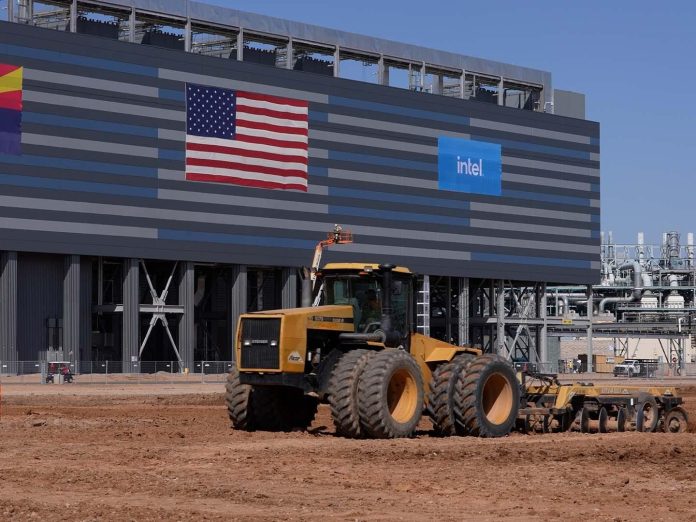
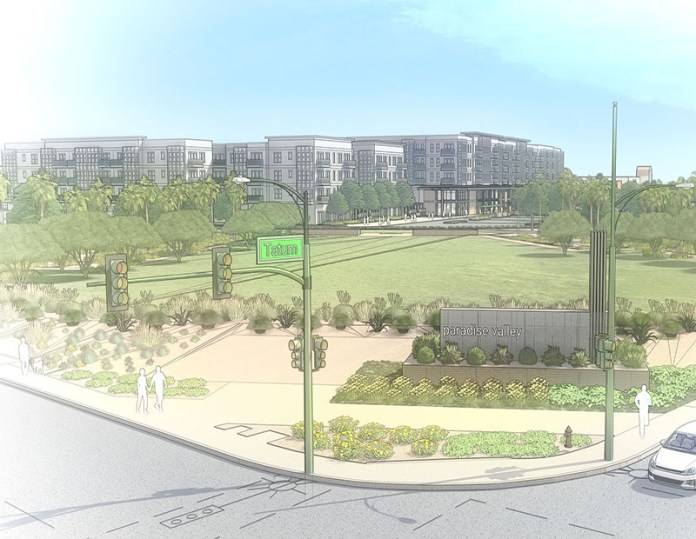

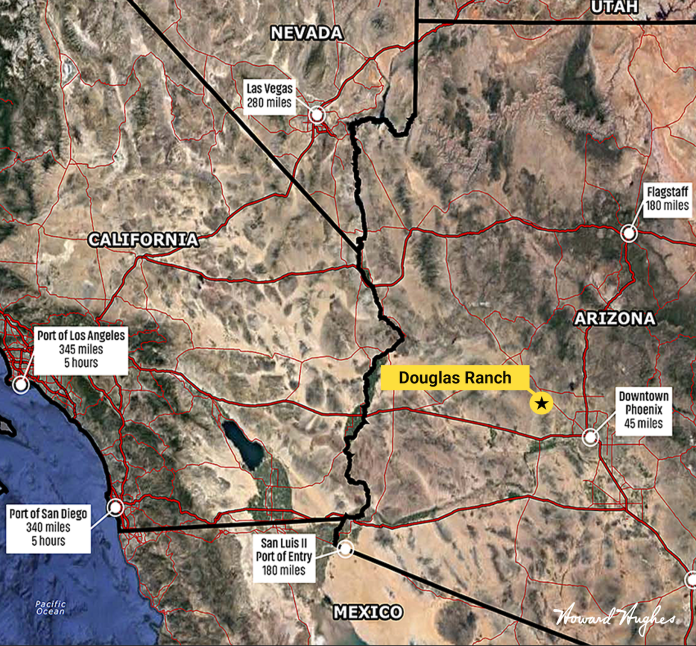
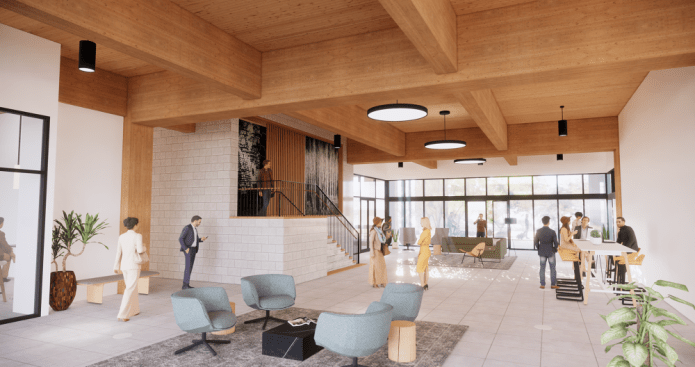
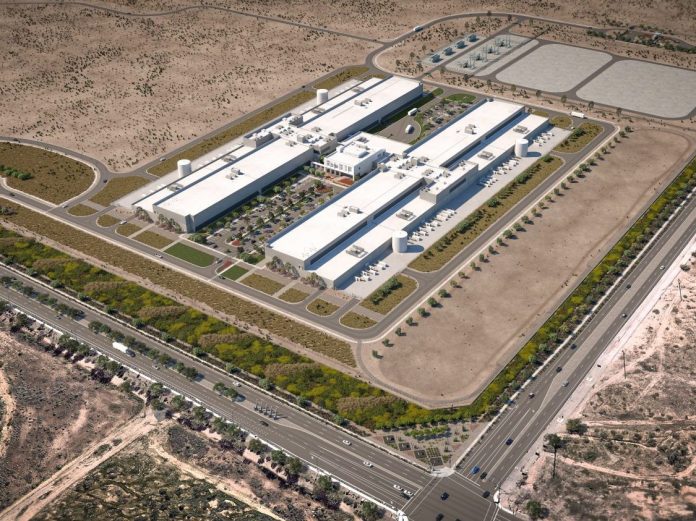






You must be logged in to post a comment.